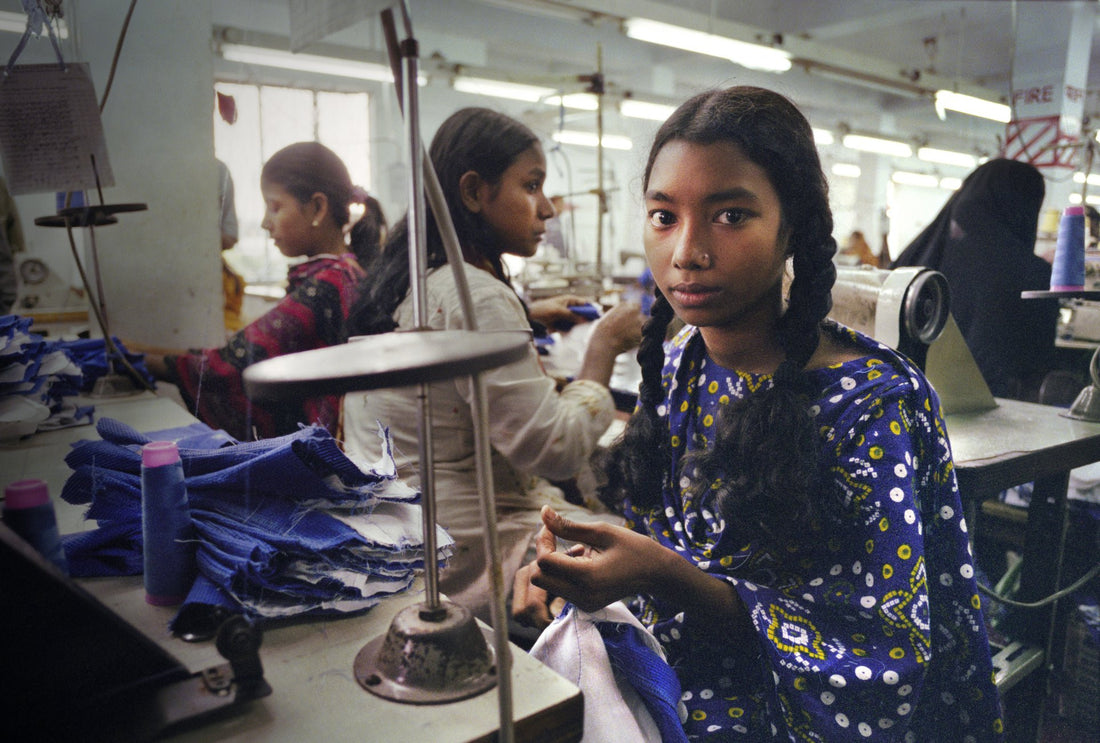I've always been a shrewd and prudent shopper. Each season I review my 10 essential wardrobe items, and assess what staples need to be replaced and or updated. Next I arm myself with a concise shopping list prior to hitting any retailer. Always seeking the highest quality clothes at the most cost effective prices. That's just being a savvy, informed consumer, right? It wasn't until recently that I discovered the reason those price tags are staggeringly cheaper than others.
I was shocked to discover that 97% of the clothing sold in the United States is outsourced to foreign countries. That's right-even a remedial sixth grade pre-algebra mathematician like myself, can easily assess that 3% of on-soil sourcing is absurdly low. And get this, there are 40 million garment workers worldwide, 85% of which are women. These workers are largely living in Bangladesh, Hong Kong, Turkey, India, Philippines, Morocco and Indonesia. The labor laws are NOT what we are familiar with in the U.S.. The sweatshops are consistently subcontracted by big-name brand designers. These factories are filled with female workers that are paid below a fair wage (dictated per finished garment), they are denied nutrition and bathroom breaks, and consistently clock in over 11 hour days. These faceless workers are paying the high cost for us to benefit from lower price tags.
Child labor is another sickening contributing factor and byproduct to low cost labor. According to Harvard Law, children were discovered assembling products for Hanes, Puma, Wal-Mart, and J.C. Penney in Bangladesh. "The children report being routinely slapped and beaten, sometimes falling down from exhaustion, forced to work 12 to 14 hours a day, even some all-night, 19-to-20-hour shifts, often seven days a week, for wages as low as 6 ½ cents an hour. The wages are so wretchedly low that many of the child workers get up at 5:00 a.m. each morning to brush their teeth using just their finger and ashes from the fire, since they cannot afford a toothbrush or toothpaste." As a mother of two children, I read this case with tears racing down my cheeks. My heart broke learning about such inhumane conditions for someone else's babies. All of this inhumanity so that designers can pay less in production, to gain higher profits.
We can all agree that the conditions for these off shore workers are egregious. But what can we do to combat this global predicament? For starters, become informed about the labels and designers you are purchasing from. We have the power create the economy that we demand. You can buy Fair Trade clothing, food, and goods from Fair Trade certified companies. Fair Trade is an economic system that supports fair pay, safe working conditions, and ensures sustainable living for farmers and workers. Finally, spread the word to others. Discuss your findings regarding sweatshops used by 97% percent of our clothing resources.
To this end I'm proud to inform you that Sillin Inc. produces all garments in the United States. You can confidently purchase Sillin's clothing knowing that it will not only be a quality piece, but rest assured that your clothes are sweatshop free purchases. Regarding cutting, sewing, and clothing construction in the U.S.A. Tabitha Sillin responded, "That's my main issue with fast fashion. People don't want to pay the higher prices, but I feel better doing it, because of what that fast fashion is doing to people and the environment. Sillin is committed to fair working conditions and factories, and all around good business ethics." We hope that you will join us at Sillin by making informed decisions about the products that you support and bring into your home.
*original source of image unknown
Here are some more informative links below.
Article on CNN, also the trailer for "The True Cost": Your clothes are killing us
Join the community of wearing ethical clothing: fashionrevolution
Article on the Guardian: Admit it. You love cheap clothes and you don't care about Child Labor

